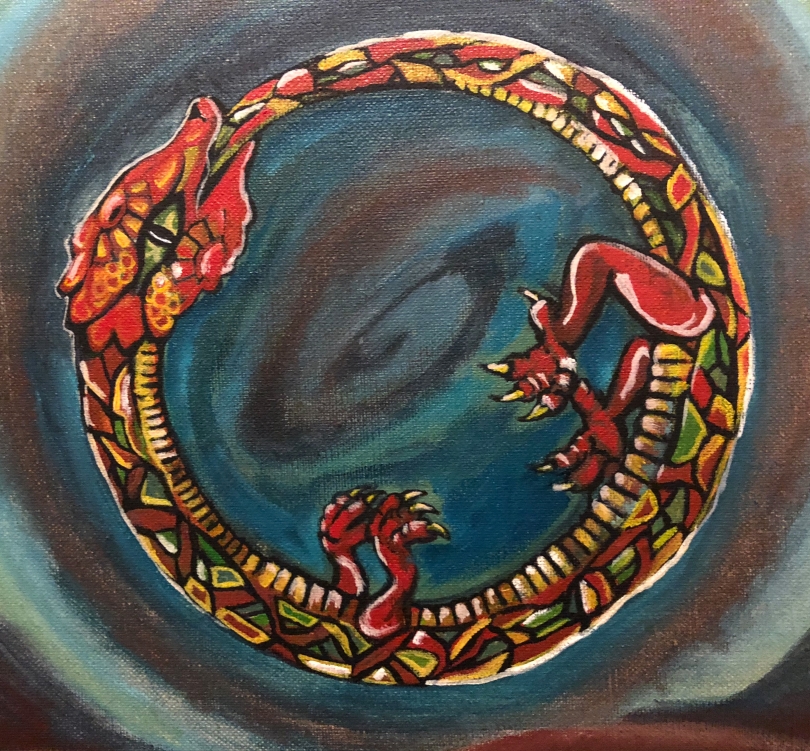A: I’ve been thinking about your definition of consciousness. You said it was an “affordance-seeking predictive engine”, which really wasn’t very helpful.
B: Sorry…
A: All good, you did say a bunch of other stuff that was interesting…
B: I do try my best.
A: Well, that’s all I ask. Aaaaaaanyway, I was listening to a podcast about consciousness and the host discussed another definition. I’m sure you probably heard before, but it seemed intuitively correct to me, so I’m wondering if you have any comments.
B: Fire away.
A: OK, so they said that consciousness is just “what it’s like to be something”. Like, what it’s like to be me is my consciousness, what it’s like to be….
B: A bat?
A: Yeah, they did use that example. They credited it to some philosopher.
B: Thomas Nagel. But really I think it’s just an extension of Descartes…
A: Slow down…
B: Sorry. Nagel wrote a famous and influential essay called “What is it like to be a bat?”. He argued that if it is like something to be something, meaning that something has subjective states, then that something is conscious.
A: Stop saying “something” – what is the relevance of bats?
B: Nagel thought that they were an interesting example because they perceive the world with different senses from us.
A: Ah, like echolocation.
B: Yep – he thought that thinking about the difference between the way a bat perceives a moth with echolocation and the way we do with our eyes would make the difference between the subjective and the objective clear.
A: Right – the moth is objective but our perceptions of it are subjective.
B: That’s the idea. And I agree, it seems intuitive and innocent enough.
A: But?
B: But….well, there are multiple “buts” actually.
A: Are they big?
B: What?
A: Are these big butts? I hope so, I cannot lie…
B: Grow up. Philosophy is serious business.
A: No wonder it’s so tedious. OK OK, go on.
B: It’s not uncommon to hear people that like this definition add that consciousness is also the one thing we can really “Know” (with a capital K, mind you) exists.
A: Actually yeah, that’s exactly what they said….
B: Well it’s part of Nagel’s thesis, which is basically Subjectivism – the only thing we can really know is our own subjective experience. And that is really just a step from Solipsism – “the only thing that exists is my own consciousness”. And this argument about “what it’s like” is also tied up with the idea that consciousness is immaterial, a “mental phenomenon”, that can’t be reduced to a scientific, physical theory. There’s so much philosophical baggage here I hardly know where to start.
A: Well I don’t think all that applies here really, the guy I heard this from is very scientific, he doesn’t even believe in free will….
B: Uh oh, he’s almost certainly a closet dualist in that case. That line of reasoning, even though it might not be explicit, goes something like: “the physical universe is a closed causal system, but our conscious thoughts, or our awareness of them, are clearly mental, thus not physical. We don’t know how the mental could possibly interact with the physical, therefore our thoughts are acausal and we don’t have free will, QED.” A lot of this goes back to Descartes and problems with his thesis.
A: That’s the second time you’ve mentioned him.
B: Well, he has a lot to answer for! Probably his most famous claim, maybe the most famous claim in all of Western Philosophy, is “cogito ergo sum” – I think, therefore I am. I’ve always liked to parody this as “cogito ergo inconditus” – I think, therefore I am confused.
A: Ha. I see that philosophy doesn’t ban humour altogether, it’s just that philosophers aren’t very good at it.
B: Anyway. Descartes’ philosophy was deeply dualistic – he divided the world into “res cogitans”, mental stuff, and “res extensa”, physical stuff. That’s not exactly unique in itself of course because the majority of people in 17th Century Europe were dualists, and he was just formalising that in his own way. There were other options available to him, mind you, there have been many monist philosophers throughout history in both the West and the East, and even Descartes’ correspondent, the Princess….
A: Is this turning into a history lesson or what?
B: Sorry. His claim “cogito ergo sum” was the end result of his experiment with skepticism – he wanted to discover if he had any certain knowledge that he could ground the rest of his philosophy on, and he came up with this Matrix-style thought experiment…
A: Hey cool, the Matrix is cool!
B: Yeah, but not very original…
A: Hold up. You’re telling me Descartes thought about dodging bullets, jumping from building to building and learning martial arts from a computer?
B: No.
A: Soooooo the Matrix is original!
B: My mistake. What Descartes imagined was that there might be an evil demon systematically deceiving his senses. Maybe the world he thought he was perceiving didn’t exist at all, but was just one big deception.
A: That is kinda like the Matrix…
B: And he therefore concluded that the only thing he could really know was that he was perceiving something, but that he couldn’t know what that something really was. So his only certainty was the fact of his consciousness itself. He later decided he was certain that God existed and a bunch of other stuff, but you get the gist.
A: Ah. So what’s wrong with “I think, therefore I am” exactly?
B: Well, we might start by inverting it – “I am, therefore I think”. What Descartes is trying to establish is something fundamental, something given, a foundation from which reasoning can begin. But his choice is arbitrary and egocentric really. He implies that the world is in his head, but he could just as easily have concluded that his head was in the world.
A: Eh?
B: He might have said that the only thing he could be certain of was that there is a world. He might be deceived about that world – maybe it’s just him and the evil demon hanging out in the void and all the rest is illusory, but nonetheless there is a world and he is in it.
A: I’m not convinced that makes much difference.
B: It’s subtle, but it’s like Chaos theory – extreme sensitivity to initial conditions. This very subtle difference in the choice of foundations for a system of philosophy can have a profound impact on the conclusions reached “higher up” the chain of reasoning. Ultimately it’s not surprising Descartes went the way he did because he believed in an immortal soul that was separate from the physical world. He was begging the question – his choice of “foundations” was really constrained by his higher level beliefs from the get go and his exercise in skepticism was purely a technical exhibition.
A: Uh huh. It still makes intuitive sense to me though.
B: Well of course, yeah – it does to most Westerners, which is what I mean by “philosophical baggage”. Our dominant philosophical heritage is dualism, and Descartes himself is a big part of that – his ideas make sense to you because you were raised in a philosophical tradition influenced by his ideas (and the ideas that influenced his ideas).
A: If you say so. I’m not sure you’ve successfully linked this to the “what it’s like” definition yet.
B: That definition comes directly out of this dualist tradition. It is an earlier version of the so-called “hard problem” of consciousness, the question of why we have any subjective experience at all….
A: That problem sounds hard, let’s deal with one at a time please.
B: It’s the same problem really, but OK, aside from prompting us to do silly things like imagining the subjective experience of a bat from inside the subjective experience of a human (which is allegedly all we can know, remember), the issue is that it privileges subjective experience in the first place. Nagel does a switcheroo when he substitutes “what it’s like to be a bat” for “what a moth is like for a bat”. Like the “hard problem”, this presupposes that there is some core kernel of subjectivity, of consciousness, that is distinct from the contents of consciousness, and this connects with Descartes’ claim that it is this thing, this core kernel, that is the only thing we can be sure of, since can be fooled about any of the contents of consciousness. But the thing is, the claim that there is any consciousness without contents is simply assumed!
A: Hmmmmmmmmm. You seem a bit excited about this.
B: You asked – I don’t like the “what it’s like” definition because it’s the same as the hard problem, which is a pseudo-problem that ultimately derives from a Cartesian split of the world into the mental and the physical. I admit that at the level of the definition itself this might not seem obvious, but I think it can lead to a lot of sloppy thinking further down the line.
A: Well, I like it and I think you philosophers get your knickers in a twist about silly things, which is why people prefer watching cute cat videos on Youtube to studying philosophy……check this one out, for example.
B: Pass.








